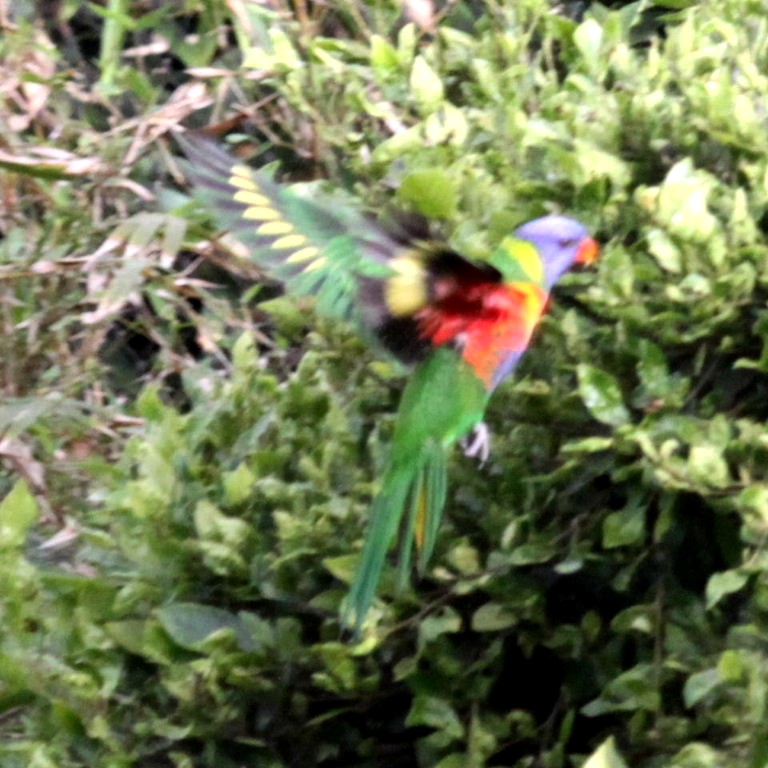Rainbow/Swainson's Lorikeet Trichoglossus (prev. haematodus) moluccanus


There used to be several subspecies of Trichoglossus haematodus all classed
as "Rainbow" Lorikeets, including the colourful T. h. moluccanus here. Since it was reclassified as
a separate full species T. moluccanus, it has kept the "Rainbow" name and the others have been
or are being generally allocated other common names (but are often still all called "Rainbow" species).


Previously known as Swainson's subspecies of "Rainbow" Lorikeet and also the misnomer of "Moluccan",
it is one of the most numerous, the most brightly-coloured and is the one most people refer to as simply the "Rainbow Lorikeet".
It is now increasingly being called just THE Rainbow Lorikeet.



Red, orange, yellow, green, blue, indigo and possibly violet.



(Swainson's) Rainbow has a full bright blue head with red beak, a greenish-yellow collar, orange/pink
and yellow breast (no dark feather edges), bright blue stomach and green thighs.



It is native to eastern Australia, from the south to the far north including some coastal islands.
The name Moluccan, although part of its scientific binomial, is misleading since it is not native to the Moluccas/Indonesia.



The underwing has red and a yellow wingbar on black.



There are 2-3 subspecies: the nominal Swainson's Lorikeet (T. m. moluccanus),
the Northern Moluccan (T. m. septentrionalis) and, sometimes separated, the Lake Eyre Lorikeet
(T. m. eyrei), but plumage does not vary much between them. However, plumage of individual birds
can vary greatly, those shown above being particularly dark-headed and dark-bellied. Above right, in a Sydney suburb, looks almost like
a black-bellied Sunset lorikeet.



There is also little visible difference in plumage of male and female, although those with
redder breasts tend to be male and those with more yellow on the breast tend to be female. Above centre has so much yellow
that it looks related to the Marigold species!
There are many other ex-Rainbow subspecies, not all illustrated here.





